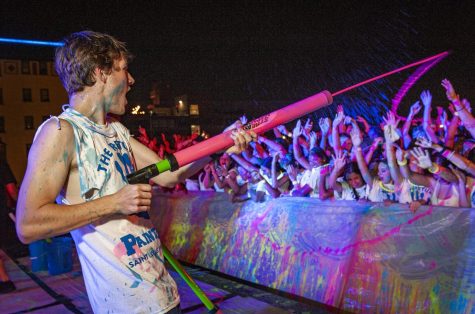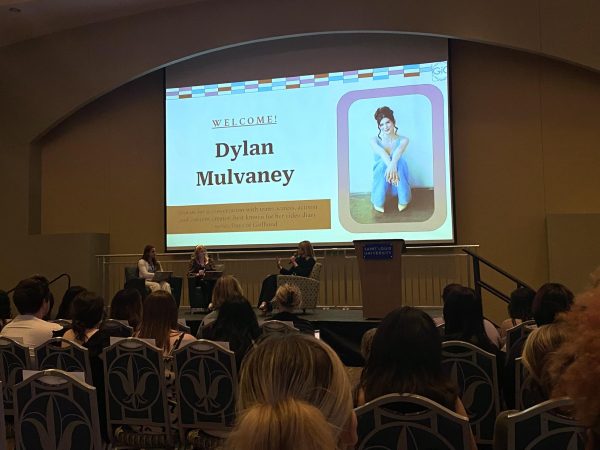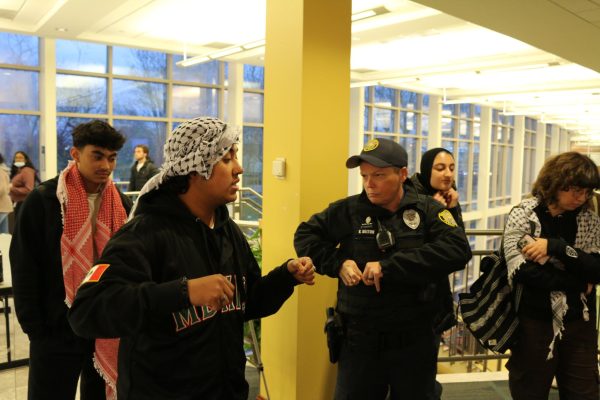Freshman on Board!

Change can be an important event in any one’s life, whether it be a simple change in a daily task or routine or moving to a new place and adjusting to a different environment and community. However, as human beings, changes and transitions are necessary for growth and development.
The transition from high school to college is one such transition. Incoming freshmen must adjust to a new school, a new set of rules and new people from different backgrounds and experiences. Course load, classes and schedules change in this transition, and with this new chapter of life comes new responsibilities.
“The pace at which everything moves at is a lot different than high school. In high school, people were always behind your back,” Ajla Civic, a freshman Medical Sciences major says. “And now you’re by yourself, you gotta figure it out on your own and what works for you.”
In addition to adjusting to a new routine, freshmen have noticed different academic expectations. Freshmen are often surprised to discover that they have an immense amount of responsibility to care for themselves, as it is their own education, money and success that is dependent on their self-disciplined actions. This forces many freshmen to completely change their previous study habits to accommodate for their new life in college.
Caleb Chu, another freshman Medical Sciences major, called this a “rude awakening.” He explains how he would usually study a couple of days in advance and even a few weeks for a test or final in high school. but now he thinks that this may not be enough for college. He finds that a substantial effort has to be made for classes and exams now. Chu recalls the most recent first General Chemistry test and how he studied a week in advance, and yet still did not feel prepared enough.
Making friends is also a component in any new student’s life. Current freshman Sowmya Muppalla thinks that it is actually easier to make friends in college than in high school.
“In high school, people are a bit more judgemental and they already have their own friend groups. In college you can just walk up to a random person and say hi and you could hit it off instantly,” Mupalla said.
Colleges expose students to more people of diverse backgrounds and beliefs than what they may be used to. According to the SLU 2021 profile, last year’s total student population was estimated to be around 13,000 students, with the freshmen class alone contributing 1,800 students, a number which is higher than that of most high schools’ total populations. This allows students to meet and know a variety of different people, as well as find people of similar interests, beliefs and values.
“With college there’s so many more people. It’s a lot easier to find people that are like you…You meet tons of new people everyday,” Chu said.
However, Chu also calls this manner of meeting people “still quite cliquish.”
Civic has had a similar experience in college. As she transitioned into this new environment and community, she understood that it may take time to form long lasting relationships.
“I think it’s easy but also hard at the same time. It takes a while to find your people and who you best click with,” Civic said.
Going into college, freshmen typically have a multitude of expectations about what they hope their experiences will be like. Contrary to her brother’s previous warnings about college life, Muppalla was surprised to discover that she has been enjoying much of the experience so far. Others like Civic have experienced both the challenges and moments of ease that college life entails. As almost one month into the new school year comes to an end, the freshmen at SLU seem to be enjoying their time and are excited for what’s to come. When asked if she feels like an adult yet, Civic simply states, “We’re getting there.”
Your donation will support the student journalists of Saint Louis University. Your contribution will help us cover our annual website hosting costs.








